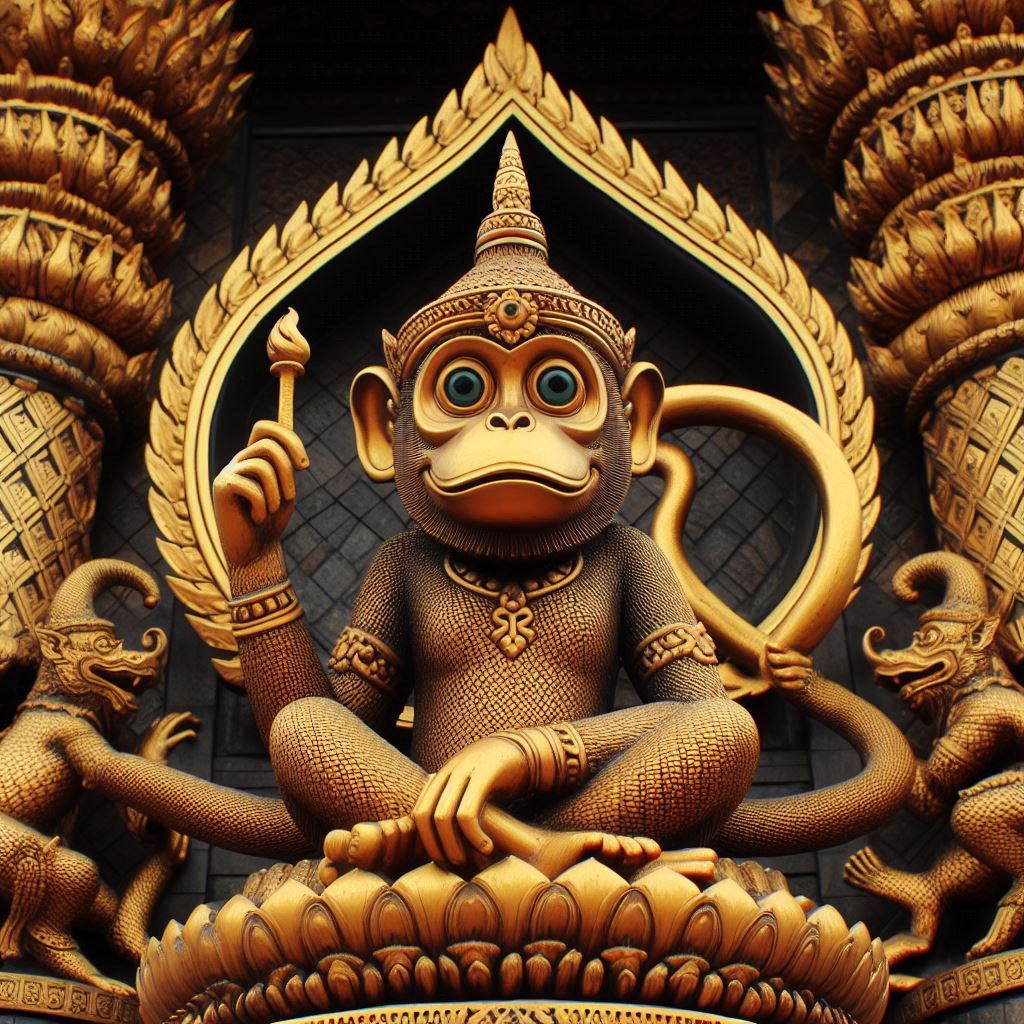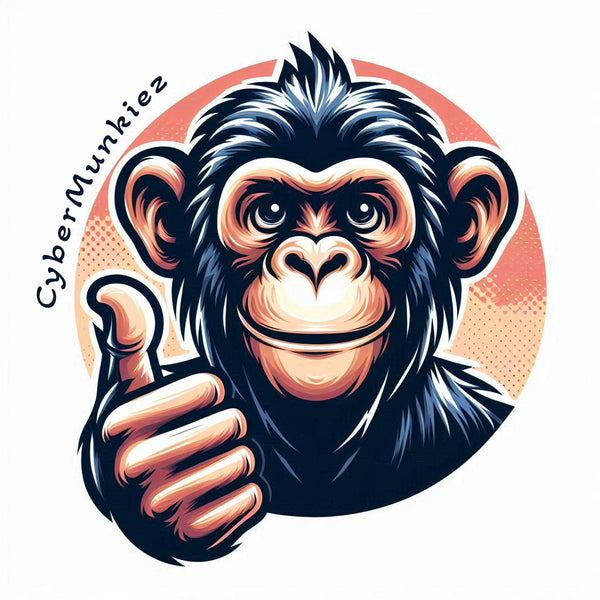
Monkey Mascots: Branding and Marketing Success Stories
Share
Monkey Mascots: Branding and Marketing Success Stories
Monkeys have long been symbols of mischief, fun, intelligence, and curiosity, making them ideal candidates for use as mascots in branding and marketing. Whether it’s their playful nature, human-like features, or association with creativity, monkeys have a unique way of connecting with consumers on an emotional level. In this article, we’ll explore the psychology behind using monkey imagery in branding and highlight some of the most successful marketing campaigns that have utilized these charismatic creatures.
The Psychology Behind Monkey Imagery in Branding
Monkeys are incredibly relatable. Their human-like behaviors, expressions, and social interactions make them appealing to people of all ages. The following psychological factors explain why monkey mascots resonate so well with consumers:
1. Relatability and Human-Like Traits
Monkeys share many behaviors with humans, such as social interactions, curiosity, and problem-solving skills. These traits make monkeys appear approachable and familiar, creating an instant connection with audiences. This sense of relatability helps brands engage with consumers on a more personal level, allowing companies to build trust and loyalty.
2. Playfulness and Fun
Monkeys are often associated with playful behavior. Their antics and energetic movements evoke feelings of joy and fun. Brands that want to convey a sense of excitement and lightheartedness often use monkeys to reinforce these values. The lively and humorous nature of monkeys is perfect for companies looking to attract customers with a youthful, vibrant, and approachable image.
3. Intelligence and Cleverness
Monkeys are known for their problem-solving skills and use of tools in the wild. This intelligence is often conveyed in branding to represent a brand’s ability to think outside the box, innovate, and overcome challenges. Monkey mascots often symbolize smart solutions, creativity, and forward-thinking, which are valuable traits for companies in competitive industries.
4. Curiosity and Exploration
Monkeys are curious creatures, always exploring their surroundings and seeking new experiences. This sense of curiosity resonates with consumers who are interested in trying new products or services. Companies using monkeys as mascots often position themselves as pioneers, eager to discover and deliver the latest trends or innovations.
Successful Branding and Marketing Campaigns with Monkey Mascots
1. The Aflac Duck and the Aflac Monkey
The Aflac insurance company is known for its quirky and memorable commercials featuring the Aflac Duck. However, in 2010, the company also tested a monkey-themed campaign that was equally effective. The monkey, much like the duck, embodied the characteristics of curiosity and cleverness. The playful, fun nature of the mascot allowed Aflac to capture consumer attention and increase brand recognition.
While the duck remained the company’s primary mascot, the brief appearance of the monkey showcased how these playful animals could easily become integral parts of brand identity, even in the competitive and often conservative field of insurance.
2. Cheetos – Chester the Cheetah and the “Monkey Business” Campaign
Chester the Cheetah, the iconic mascot for Cheetos, may not be a monkey, but the brand’s 2006 “Monkey Business” campaign fully embraced the mischievous and playful nature of monkeys. The campaign featured a monkey stealing bags of Cheetos from a store, creating a fun narrative around the idea of “monkeying around” with the popular snack. This playful marketing strategy helped boost the snack’s appeal among younger, fun-loving consumers.
The success of the campaign lies in the brand’s ability to align its image with that of a cheeky, fun monkey who doesn’t follow the rules—just like many of the brand’s customers.
3. The Geico Gecko and the Monkey’s Clever Twin
Geico is another major brand that has used animal mascots in its marketing with great success. While the Geico Gecko is the brand’s most famous mascot, the company occasionally incorporates monkeys into their campaigns, often in a tongue-in-cheek way that plays on the idea of “cleverness” and “intelligence.”
In 2016, Geico released an ad where a monkey was portrayed as the “clever twin” to the Geico Gecko, demonstrating how Geico’s products are as “smart” and “effective” as the wit and intelligence attributed to primates. The use of the monkey mascot helped emphasize the company’s value proposition—offering smart, cost-effective solutions to customers in a fun and entertaining way.
4. Monkeys and the Coca-Cola Brand
In Coca-Cola’s ad campaigns, monkeys have appeared as part of larger themes related to enjoyment, community, and sharing. Their playful energy aligns with Coca-Cola’s brand identity, which promotes fun, social interaction, and happiness. A notable campaign included a series of animated commercials featuring monkeys sharing Coca-Cola with their fellow animals, symbolizing the idea of bringing joy to others.
The use of monkeys in Coca-Cola’s advertising was designed to highlight the universal nature of happiness, showing that joy (much like Coca-Cola) can be shared by anyone, regardless of species or background. The campaigns worked well because of their simple, fun, and accessible narrative, which is a cornerstone of Coca-Cola’s branding.
The Future of Monkey Mascots in Branding
As we move further into the 21st century, brands continue to explore new ways of leveraging the charisma of monkeys to build strong emotional connections with consumers. With the rise of digital and social media, companies are finding new opportunities to incorporate monkey imagery into influencer campaigns, viral videos, and interactive advertising.
The key to successful monkey mascots lies in their ability to embody the essence of a brand’s values. Whether that’s playfulness, intelligence, curiosity, or social consciousness, monkeys have the innate ability to engage audiences and drive marketing success.
Conclusion: Why Monkey Mascots Work in Branding
Monkey mascots have become more than just a cute or funny representation in advertising—they serve as emotional connectors, clever symbols, and cultural icons. The psychology behind their use in branding taps into human emotions, creating a lasting bond between the brand and the consumer. Whether for playful appeal or to convey a deeper sense of intelligence and curiosity, monkey mascots have proven time and time again to be highly effective in both traditional and digital marketing.
Suggested SEO Keywords:
monkey mascot branding, marketing with monkeys, monkey imagery in advertising, Aflac monkey, Cheetos monkey campaign, Geico monkey ad, Coca-Cola monkey ad, successful animal mascots, monkey mascot psychology, clever animal mascots in marketing.
